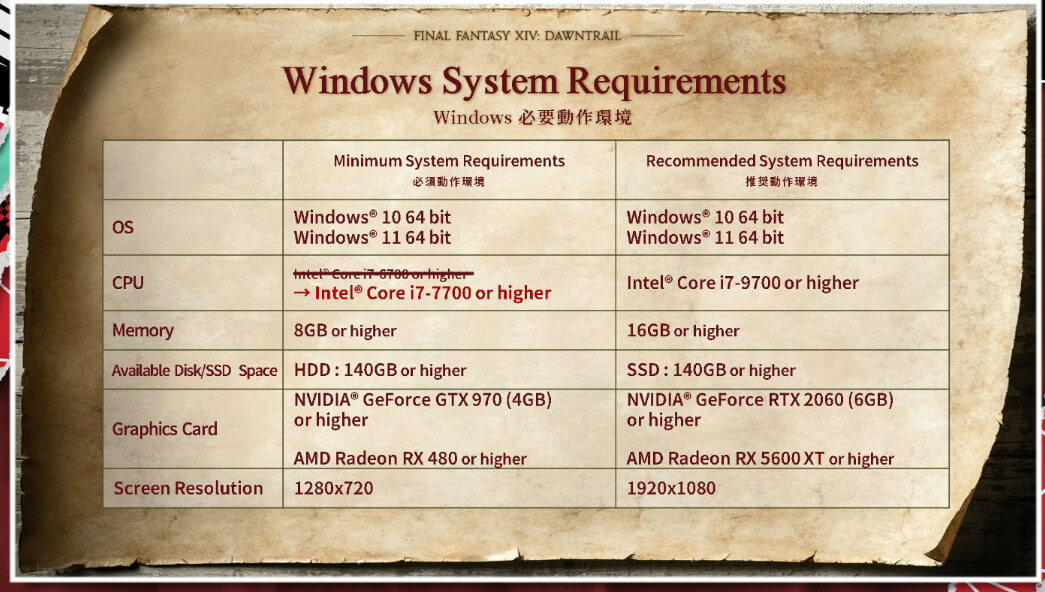Square Enix has announced that a PC benchmark tool for Final Fantasy XIV: Dawntrail will be made available for download tomorrow. To celebrate this announcement, the team has also shared an official trailer for it that you can find below.
Although we don’t have enough tech details about it, we do know that Dawntrail will support FSR and DLSS. To be more precise, the expansion will support AMD FSR 1.0 and NVIDIA DLSS 2.0. Right now, there are also no plans to add support for Frame Generation.
It’s a bummer that Dawntrail will support FSR 1.0 and not FSR 2.2. I don’t really know why Square Enix decided to use this older version of FSR. AMD FSR 1.0 looks awful. As such, non-RTX owners will have to hope for an FSR 2.2 mod.
Anyway, as Square Enix noted, the benchmark tool will be free to anyone. This shouldn’t come as a surprise as the company has been releasing free benchmarks for pretty much every expansion of FF XIV. The download link will be made available on April 14th at 9:00 AM GMT. So, I’ll be sure to update this story with a link to it once it’s live.
A few days ago, Square Enix also shared the official PC system requirements for Dawntrailer. According to the specs, PC gamers will at least need an Intel Core i7 7700 with 8GB of RAM and an NVIDIA GeForce GTX970. These minimum PC specs will allow you to run the game at 720p. For gaming at 1080p, Square Enix recommends an Intel Core i7 9700K with 16GB of RAM and an NVIDIA GeForce RTX 2060 or an AMD Radeon RX 5600XT.
Enjoy and stay tuned for more!
UPDATE:
The benchmark is now available for download from this link.

John is the founder and Editor in Chief at DSOGaming. He is a PC gaming fan and highly supports the modding and indie communities. Before creating DSOGaming, John worked on numerous gaming websites. While he is a die-hard PC gamer, his gaming roots can be found on consoles. John loved – and still does – the 16-bit consoles, and considers SNES to be one of the best consoles. Still, the PC platform won him over consoles. That was mainly due to 3DFX and its iconic dedicated 3D accelerator graphics card, Voodoo 2. John has also written a higher degree thesis on the “The Evolution of PC graphics cards.”
Contact: Email


